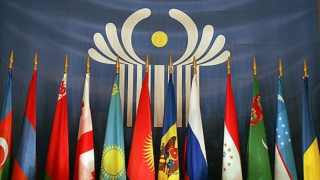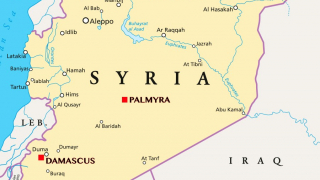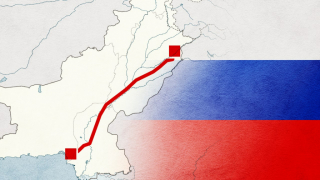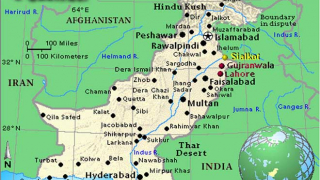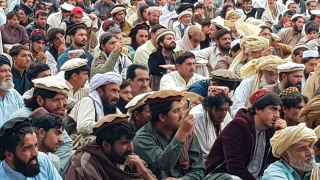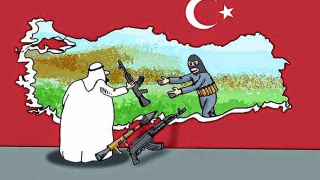Afghan Citizens' Involvement in Terrorism in Pakistan
Terrorism continues to endanger Pakistan's security and undermine its overall stability. Recent events prove how complicated border violence works between Pakistan and Afghanistan when Pakistani security forces exchange custody of Mohammad Khan Ahmadkhel in Zhob to Baluchistan authorities. Ahmadkhel's terrorist actions inside Pakistan prove how easy it is for foreign militants to move across the Afghan-Pakistan border. They also show hostile forces take advantage of Afghan land to target Pakistan.
The discovery that an Afghan terrorist operates in Pakistan shows terrorist activities travel freely across international borders. Security experts worry about fighters using an easy crossing between Afghanistan and Pakistan to move their members, troops and supplies. The Tehrik-i-Taliban Pakistan uses Afghan sanctuaries as bases to design and conduct attacks inside Pakistan. These safe areas protect groups against Pakistan's counterterrorism forces so they can rebuild their strength after confrontations.
Afghan citizens who support instability make the situation between Pakistan and Afghanistan harder to solve properly. People like Ahmadkhel show that terrorist groups operate beyond national borders through their recruiting bases training grounds and financial backing. Militant organizations from multiple nations working together proves why we require global and regional coordination to defeat these threats.
The Ahmadkhel event further proves Pakistan's ongoing fears about terrorist groups using Afghan territory to attack. Despite ongoing pressure, the Taliban government of Afghanistan continues to let groups such as the TTP use their country as a base. This failure to take action weakens peace throughout the region and continues to create distrust between Pakistan and Afghanistan.
Pakistan shows good faith cooperation by giving the body of Ahmadkhel to Afghan authorities to fight terrorism together. The Taliban needs to make clear progress in fighting terrorism by shutting down terrorist bases in Afghanistan and blocking financial support for radical movements while ending extremist education systems.
Afghan nationals who take part in terrorist actions in Pakistan hurt security throughout the region. Militant groups sanctuary in Afghanistan endangers both Pakistan's security and brings harm to everyone in the region. The growing cross-border terrorism in South Asia now challenges worldwide efforts to prevent violent extremism.
To fight violence effectively, international players must understand their shared fight against terrorism and unite their responses to eliminate its basic origins. Effective solutions demand close partnership between international diplomats and military forces to detect and eliminate security threats that originate from the Afghan side of the border. Our fight against extremism needs to include improving these networks' social and economic environment to stop violence from spreading.
The Afghan people's long-term support for violent acts shows that we must deal with basic societal conditions that let terrorism survive. Lack of education and economic opportunities let extremist groups find new believers in Afghanistan. Violent groups use weakness points in society to find new followers and turn them toward extremism which continues to affect countries everywhere.
Governments should make empowering development programs against terrorism by building better lives for vulnerable populations. Improving government rules helps Afghanistan retain control of spaces militants try to occupy. Governance problems let extremist groups thrive in Afghanistan spreading violence beyond the country's borders.
An effective solution needs to target and respond to terrorism activities between Afghan citizens and Pakistan. Our plan needs to control our national borders effectively to block all militant traffic. Technological security systems that use camera drones and body scans at border checkpoints help security forces do their jobs better.
International talks should happen between Pakistan and the Taliban government as they share the same fight against terrorism. Pakistan and Afghanistan need official meetings to develop mutual understanding and solve their joint problems. The global community must help both nations develop their counterterrorism tools by offering know-how training and money to improve their safety systems.
Our fight must target terrorist belief systems because these underpin the attacks. Leaders from spiritual groups and education providers should partner with social groups to tell stories about peace alongside active resistance to violent propaganda. A long-term program needs to bring communities directly involved to suppress terrorism roots.
Incorporating Afghan nationals into terrorism actions inside Pakistan demands unified regional measures right away. Efforts to solve terrorism's core problems plus regional team-ups plus international backing will guide this region towards long-lasting safety.


